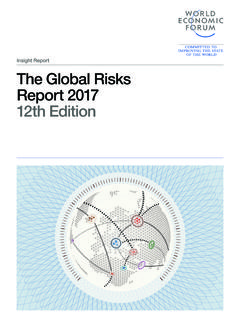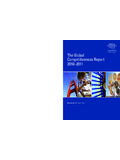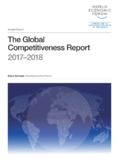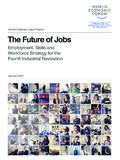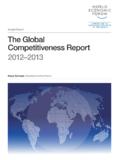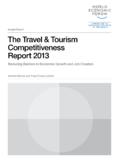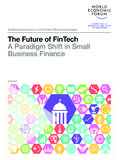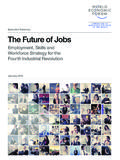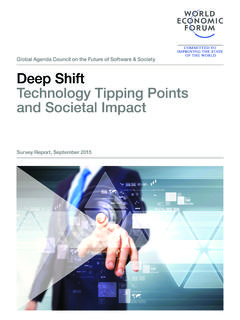Transcription of Governing Smart Cities: Policy Benchmarks for Ethical and ...
1 Governing Smart Cities: Policy Benchmarks for Ethical and Responsible Smart city DevelopmentWHITE PAPERJ U LY 20 21In collaboration with DeloitteContentsCover: Usplash/Ryoji_iwataInside: Usplash/Tim_Parson; Usplash/Tommy_pla; Usplash/Roland_Denes; Usplash/Fraser_Cottrell 2021 World Economic Forum. All rights reserved. No part of this publication may be reproduced or transmitted in any form or by any means, including photocopying and recording, or by any information storage and retrieval document is published by the World Economic Forum as a contribution to a project, insight area or interaction. The findings, interpretations and conclusions expressed herein are a result of a collaborative process facilitated and endorsed by the World Economic Forum but whose results do not necessarily represent the views of the World Economic Forum, nor the entirety of its Members, Partners or other Foreword4 Executive summary5 Introduction6 Cities adjusting to the new paradigm6 The G20 Global Smart Cities Alliance and a new Policy roadmap 10 2 Emerging trends in Smart city governance13 3 Conclusion15 4 Appendices16 Appendix 1: ICT accessibility in public procurement18 Appendix 2: Privacy impact assessment20 Appendix 3: Accountability for cybersecurity22 Appendix 4: Dig Once for digital infrastructure24 Appendix 5: Open data26 Contributors27 Acknowledgements28 EndnotesGoverning Smart Cities.
2 Policy Benchmarks for Ethical and Responsible Smart city Development2 ForewordCities need better governance to build resilience and improve technology Merritt Head, Internet of Things and Urban Transformation, World Economic ForumMiguel Eiras Antunes Global Smart Cities Leader, Deloitte Global, PortugalYoshitaka Tanaka Consulting Chief Strategy Officer, Deloitte, JapanGoverning Smart Cities: Policy Benchmarks for Ethical and Responsible Smart city DevelopmentJuly 2021 The COVID-19 pandemic has underscored the importance of resilience in societies across the world. The crisis has seen cities, in developed and developing nations alike, reaching for data and tools to get real-time intelligence and make targeted interventions to save lives. Digital tools are a step towards realizing the Smart city that technologists have been anticipating for crisis has also highlighted challenges for Policy , governance and operations that have been around since the idea of Smart cities first came about in relation to how data is secured, how people s privacy is protected, how inclusion is ensured, and how different agencies and organizations can share data quickly.
3 As we look at how to recover from the pandemic and invest in improving resilience to meet the next crisis, we need to ensure that governments address Policy gaps that slow down our is the first report by the World Economic Forum on the state of technology governance in cities. The report tracks the efforts of the G20 Global Smart Cities Alliance, which seeks to advance the responsible and Ethical use of Smart city technologies. The Alliance and its partners represent more than 200,000 cities and local governments, leading companies, start-ups, research institutions and civil society communities. The World Economic Forum acts as its report is possible only because of the close partnership between the World Economic Forum and Smart Cities: Policy Benchmarks for Ethical and Responsible Smart city Development3 Executive summaryAs cities adjust to the new post-pandemic paradigm, there is a need to focus on policies for the responsible and Ethical use of report, Governing Smart Cities, provides a benchmark for cities looking to establish policies for Ethical and responsible governance of their Smart city programmes.
4 It explores current practices relating to five foundational policies: ICT accessibility, privacy impact assessment, cyber accountability, digital infrastructure and open data. The findings are based on surveys and interviews with Policy experts and city government officials from the Alliance s 36 Pioneer Cities . The data and insights presented in the report come from an assessment of detailed Policy elements rather than the high-level indicators often used in maturity model policies developed by global experts as a framework, the analysis in this report reveals serious gaps across cities of all sizes, in all geographies and at all levels of economic development. Among our Pioneer Cities: The pandemic has rapidly accelerated digital transformation and the adoption of city services, which makes the accessibility of digital city services a vital component of an inclusive city . However, less than half of cities have policies in place to embed basic accessibility requirements into their procurement of ICT, and less than half of cities provided evidence that they implement these requirements in practice.
5 80% of cities acknowledge legal obligations for privacy and data protection, but less than 25% conduct privacy impact assessments when they deploy new technology. During the pandemic there appears to have been an increase in cyberattacks on local authorities and Yet most cities do not have anyone designated as accountable for cybersecurity, nor a cybersecurity plan that is regularly reviewed by senior executives. The pandemic has been defined by homeworking and remote education. But many cities lack the digital infrastructure needed to support or sustain this shift. The importance of connectivity has been made Among the Pioneer Cities, less than half have a Dig Once Policy in place to ensure that digital infrastructure is installed during street excavations and construction works. This would accelerate the roll-out of connectivity infrastructure and reduce disruption. Moreover, less than one-third of cities have the governance processes needed to drive connectivity roll-out through a Dig Once Policy .
6 Open data Policy is perhaps the only area in which most cities in our sample have achieved a level of basic implementation. Even here, only 15% of the Pioneer Cities have integrated their open data portals with their wider city data infrastructure, which is a necessary step towards making a city open by default .These results show that cities today lack the basic building blocks to safeguard their interests and ensure the longevity of their Smart report concludes with a call to action for stakeholders including city leaders, Policy -makers, civil society3 and Smart city technology vendors. city leaders need to take a longer-term view and identify governance gaps before they become material risks. Government officials and Policy -makers can use Benchmarks such as the model policies offered by the G20 Global Smart Cities Alliance to identify and address these gaps. Civil society organizations can offer these Policy -makers multidimensional assistance including technical advice.
7 Furthermore, Smart city technology vendors should use this opportunity to demonstrate long-term commitment to cities by helping them to implement the policies they of these stakeholders have a role to play in speeding up the adoption of better policies in cities, to ensure they are fit for the challenges they face today. The G20 Global Smart Cities Alliance offers a platform for stakeholders to work together in developing, piloting and scaling better policies for Smart Smart Cities: Policy Benchmarks for Ethical and Responsible Smart city Development4 Introduction1 The G20 Global Smart Cities Alliance has developed Policy Benchmarks that specify the foundational policies that cities need for Ethical Smart city Smart Cities: Policy Benchmarks for Ethical and Responsible Smart city adjusting to the new paradigmGovernments, businesses and societies across the world have suffered severe disruption from the consequences of the COVID-19 pandemic since late 2019, and by April 2020 economic activity had collapsed almost everywhere.
8 Cities and urban areas, the engines of economic growth, faced their biggest public health and economic challenge in modern programmes have now started, and these will play a big part in getting cities and countries back on their feet. However, the pandemic has left behind a trail of economic destruction, especially in cities and urban areas. Mayors are concerned about the impact of the pandemic on their local economies and finances. Respondents to a Deloitte-ESI survey4 of 167 cities globally ranked the pandemic and damage to the economy as the two biggest external disruptions facing cities In addition to the economic challenges, city leaders have been hard pressed to improve public health infrastructure and build resilience to counter further this context, Smart city technologies have a role to play in enhancing the responsiveness and resilience of cities to current and future shocks while unlocking efficiencies and improvements in the quality of life.
9 Cities such as melbourne are collecting data on foot traffic to analyse their economic activity. Seoul and Singapore have used investments in their data infrastructure to deploy contact tracing services quickly. But, as the case of Singapore has shown, rapid deployment of technology can lead to a public Yet cities may struggle to put sustainable policies in place when they are in the middle of a crisis and searching for the future, the drive for resilience and efficiencies could lead to more investment in new technology. As city leaders start looking to technologies such as chatbots and facial recognition to find efficiencies and provide new services, we need to ensure that policies are in place that embed Ethical and responsible governance. This will ensure that cities can move quickly to deploy new solutions, without incurring risks regarding privacy, cybersecurity or , some cities are better placed than others to develop and implement the policies required.
10 In fact, around half of the world s urban population live in settlements with fewer than 500,000 inhabitants, where they do not have the same level of resources as global cities such as Seoul and Knowledge-sharing between cities is therefore crucial to rapid progress. This is the starting point for this report and for the G20 Global Smart Cities G20 Global Smart Cities Alliance and a new Policy roadmap Following a call to action from the G20 ministers in 2019, the G20 Global Smart Cities Alliance was established to help cities identify and adopt foundational policies for Smart city that end, the G20 Global Smart Cities Alliance is committed to creating a Policy roadmap to which Policy -makers and technology providers can refer as a baseline for sound technology governance. The roadmap is organized around five core principles (Figure 1).These principles embody fundamental requirements that all Smart cities should meet, regardless of their strategic objectives.
